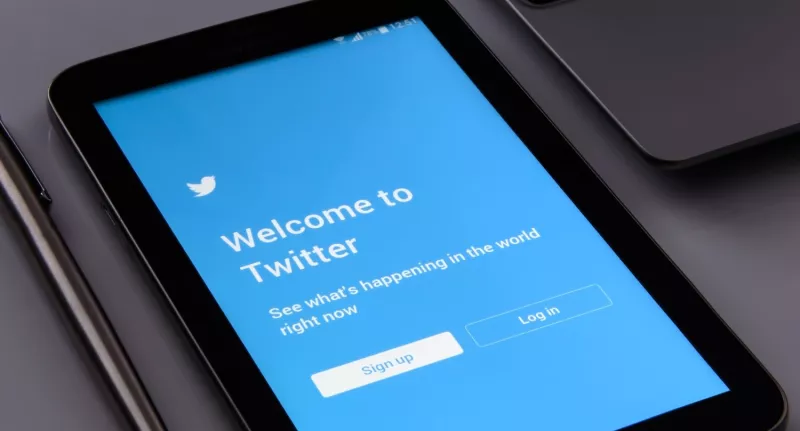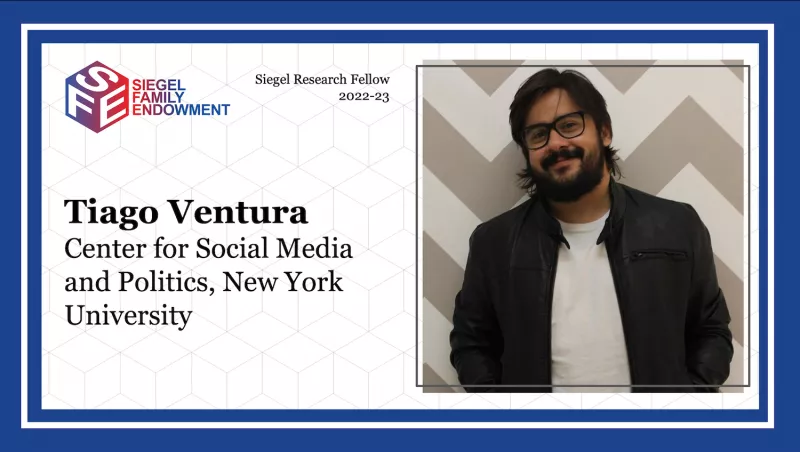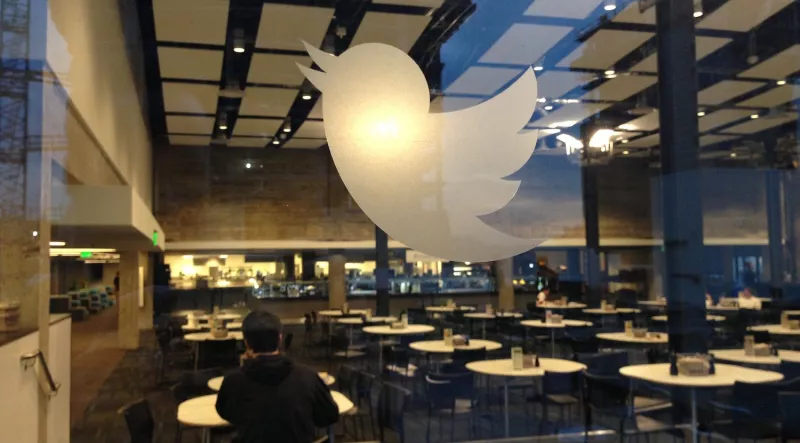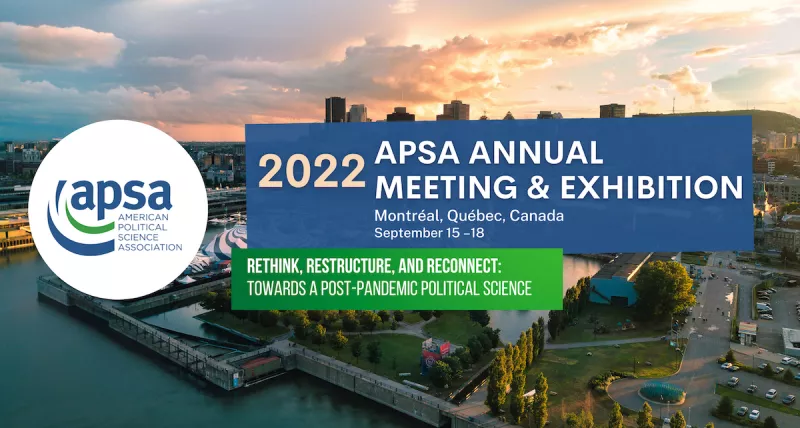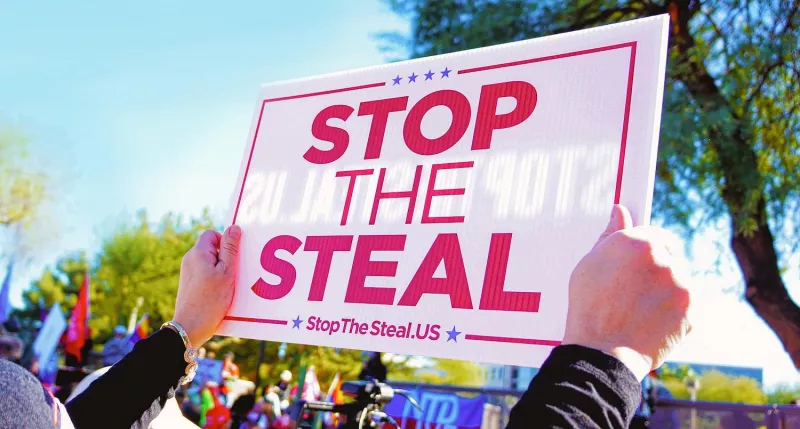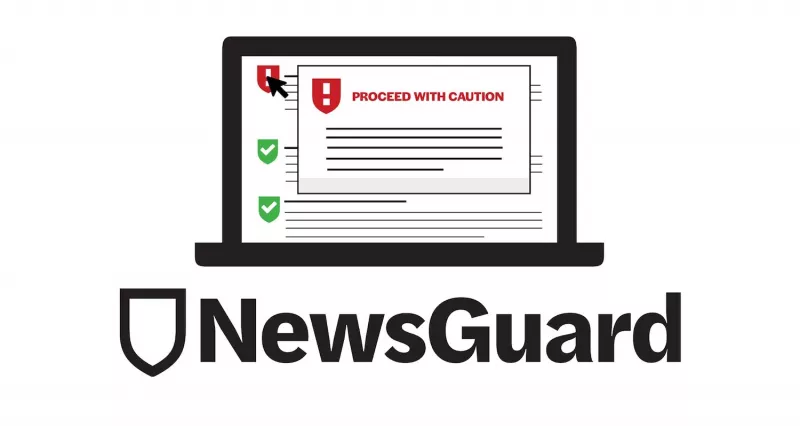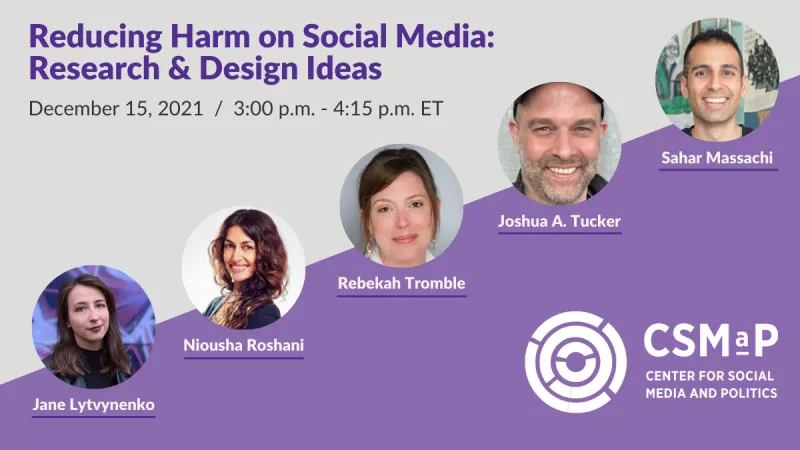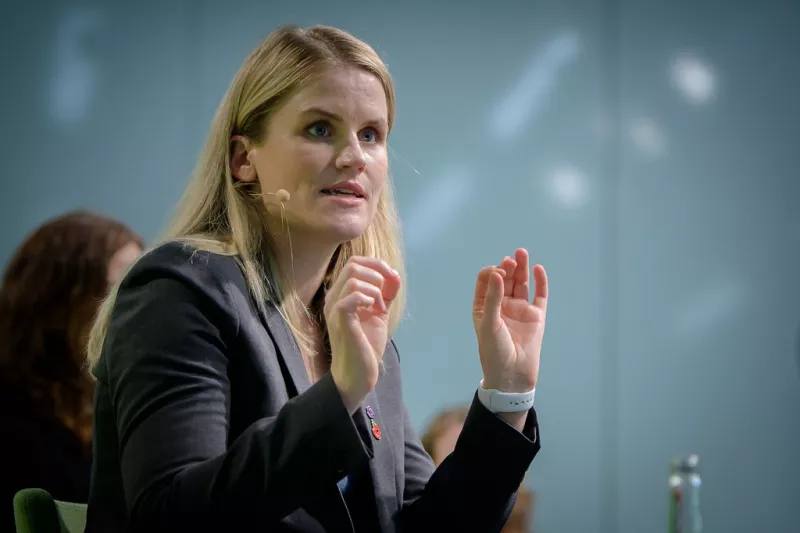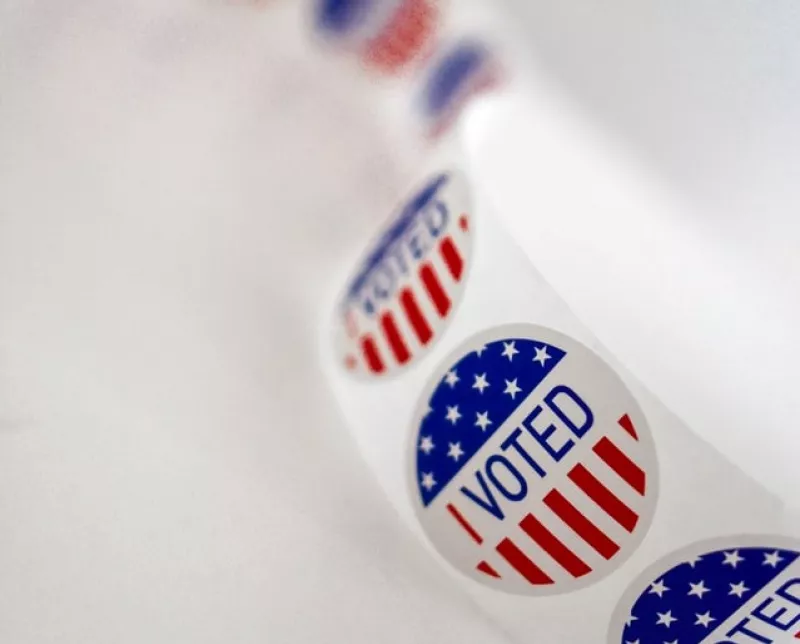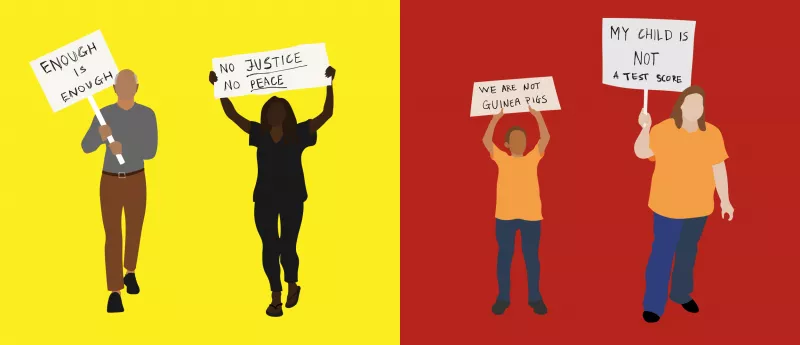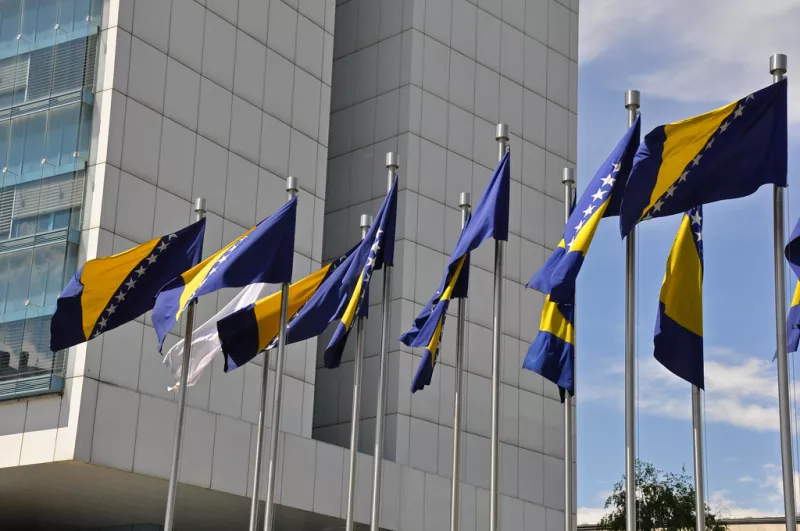News & Commentary
Search or Filter
-
News
Exposure to Russian Twitter Campaigns in 2016 Presidential Race Highly Concentrated, Largely Limited to Strongly Partisan Republicans
New study shows online push by foreign disinformation accounts didn’t change attitudes or voting behavior — but the disinformation effort may still have had consequences.
January 9, 2023
-
News
2022 Year in Review: Our Research & Impact
A look at our top articles, events, and more from the past year.
December 19, 2022
-
News
Siegel Family Endowment Renews Support for CSMaP Research
The grant will help us conduct cutting-edge research and advance evidence-based public policy. It also supports research from Tiago Ventura, a CSMaP postdoc who will join the latest cohort of Siegel Research Fellows.
November 16, 2022
-
Commentary
Musk’s Twitter Shake-Up Could Deliver a Critical Blow to Social Media Research
We still don’t know the extent of what Musk has actually changed within Twitter. But without mandated data access for researchers, we risk never knowing their impact on society as well.
November 9, 2022
-
News
CSMaP Wins 2022 APSA Award
Our scholars won Best Article in the Information Technology and Politics Section.
September 20, 2022
-
News
YouTube More Likely to Direct Election-Fraud Videos to Users Already Skeptical about 2020 Election’s Legitimacy
New study shows how site’s algorithms perpetuate existing misperceptions.
September 1, 2022
-
Commentary
Big Tech Must Step Up Now to Fight Misinformation in the Midterms
As 2022 candidates embrace Trump's Big Lie, social platforms are reducing election integrity efforts. What should they do to safeguard the midterms?
July 10, 2022
-
News
Does Presenting Credibility Labels of Journalistic Sources Affect News Consumption? New Study Finds Limited Effects
On average, source credibility labels don’t change whether someone reads low-quality news sources — but it does appear to improve the news diet quality of the heaviest consumers of misinformation.
May 6, 2022
-
Policy
The Social Media Data We Need to Answer Key Research Questions
Ahead of a Senate Judiciary Subcommittee hearing on platform transparency, we submitted a letter outlining the type of research questions we want to answer — and the social media data we need to answer them.
May 4, 2022
-
Commentary
How to Evaluate Elon Musk’s (Potential) Impact On Twitter
There are three areas — content moderation, transparency, and data access — to watch closely as Musk takes ownership of Twitter.
April 26, 2022
-
Commentary
The People Who Believe Russia’s Disinformation
Will Russia’s propaganda campaign continue to work on its citizens and others? Or will the lies fall apart?
April 12, 2022
-
News
How Pro-Regime Bots are Used in Russia to Demobilize Opposition and Manipulate Public Perception
In a new paper, we investigate how pro-regime bots employ a variety of tactics to prevent, suppress, or react to offline and online opposition activities in Russia, finding online activities produce stronger reactions than offline protests.
February 21, 2022
-
News
2021 Year in Review: Our Research & Impact
A look at our top articles, events, and more from the past year.
January 5, 2022
-
News
A Conversation About Reducing Harm on Social Media
Recap of our recent event with academic, policy, and tech experts on how to make social media a safer and more civil place.
December 20, 2021
-
Commentary
A Modest Ox: Examining Two Approaches to Testing Crowdsourced Fact Checking
Crowdsourced fact-checking, far from being a panacea to our so-called information disorder, could potentially be one tool in what certainly needs to be a much larger toolkit to discern facts in a complex ecosystem.
December 10, 2021
-
Policy
How to Fix Social Media? Start with Independent Research.
Congress should mandate an unprecedented corporate data-sharing program to enable outside, independent researchers to conduct the kinds of analysis on social media platforms that firm insiders routinely perform.
December 1, 2021
-
News
Warnings May Reduce Hate Speech on Twitter, New Study Finds
Warning users of the potential consequences of their behavior can temporarily reduce their hateful language.
November 22, 2021
-
Commentary
Academic Researchers Need Access to the Facebook Papers
With access to these documents, scholars could support the media, public, and policymakers in identifying where Facebook’s internal research is conclusive, what inferences can be drawn, which topics require more evidence and future research, and what that research should be.
November 4, 2021
-
News
New Study: Can Ordinary Users Effectively Fact Check Fake News in Real Time?
Social media companies have suggested using ordinary users to assess the veracity of news articles and combat misinformation, but a new paper finds this is likely not a viable solution.
October 28, 2021
-
Commentary
Facebook, Open Your Data Trove
As the Facebook Papers revelations continue, it’s critical for the government, through legislation or regulation, to require social media platforms to be more transparent and open up more data to outside researchers.
October 5, 2021
-
News
Launching Multilingual Research Project Studying Election Disinformation
Craig Newmark Philanthropies donates $350,000 to fund new multilingual research on the types of disinformation communities are exposed to during elections.
September 13, 2021
-
News
Despite Warning Labels, Trump’s Election Misinformation Tweets Spread Widely Across Social Media Platforms, New Study Finds
The paper’s findings reveal how misinformation spreads across networks and point to need to improve content-moderation techniques.
August 24, 2021
-
News
Our Craig Newmark Philanthropies Graduate Students
In 2020, Craig Newmark Philanthropies donated $400,000 to support our PhD students, ensuring they could continue their research projects examining some of the biggest questions at the intersection of social media and democracy. Here is an update on what they've been working on this past year thanks to Craig's generous support.
July 1, 2021
-
News
Influential Users in the Common Core and Black Lives Matter Social Media Conversation
We analyzed Twitter discussions around two very different topics and found striking similarities in how political discussions evolve online.
June 30, 2021
-
News
How Do Social Media Influence Ethnic Polarization?
Those who deactivated their Facebook profiles report a lower regard for other ethnic groups, shows a new study of users in Bosnia and Herzegovina.
June 14, 2021
